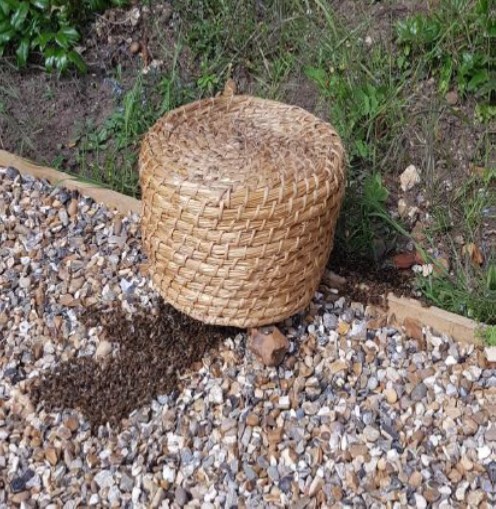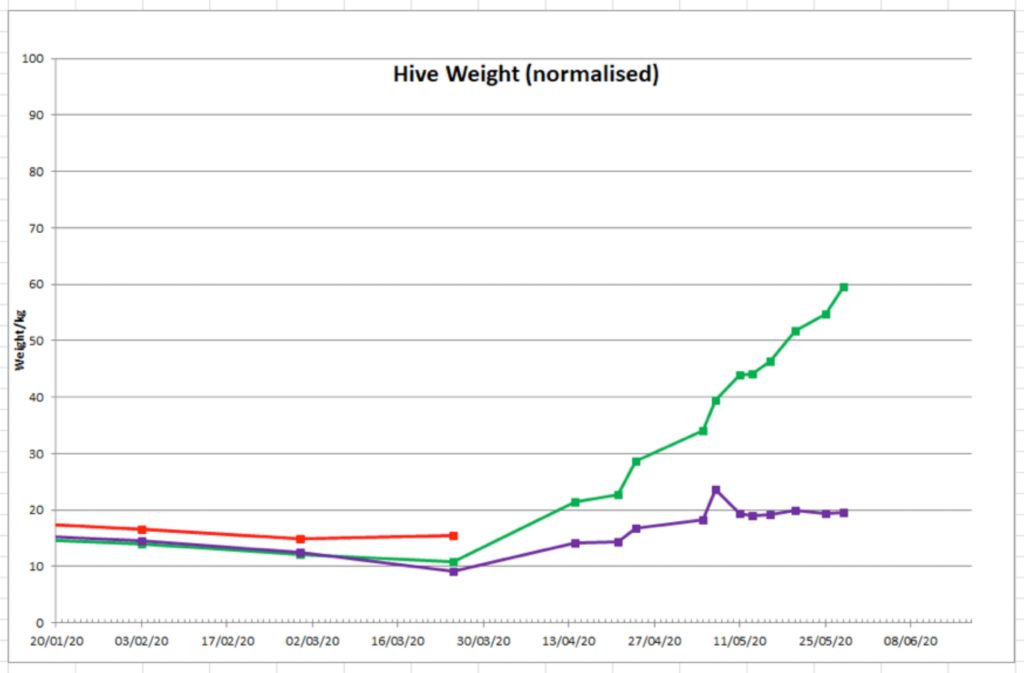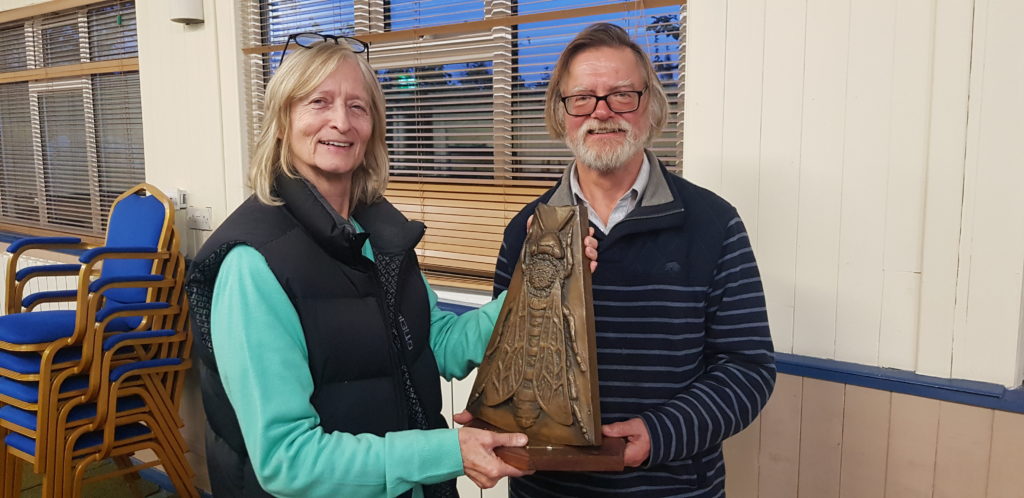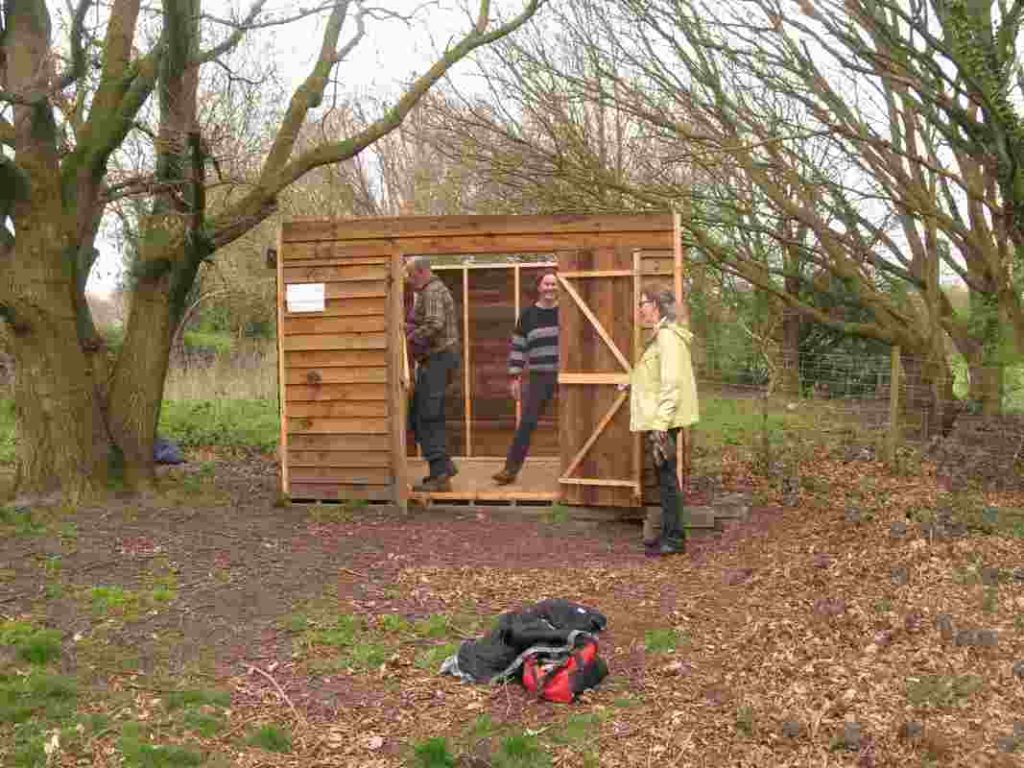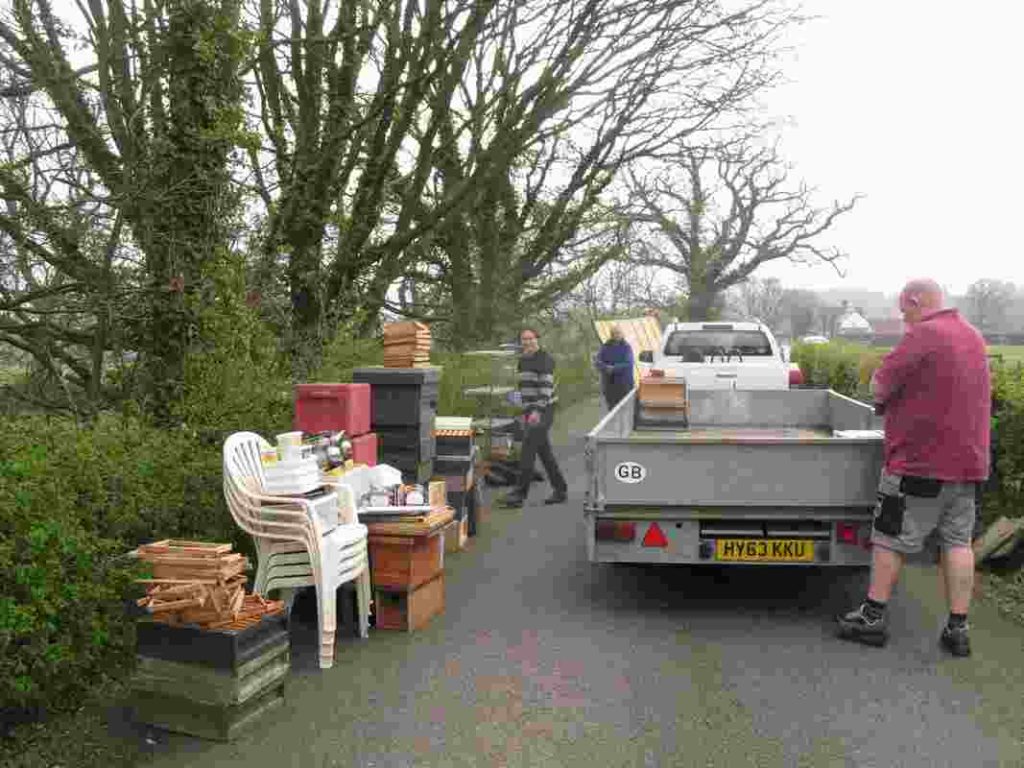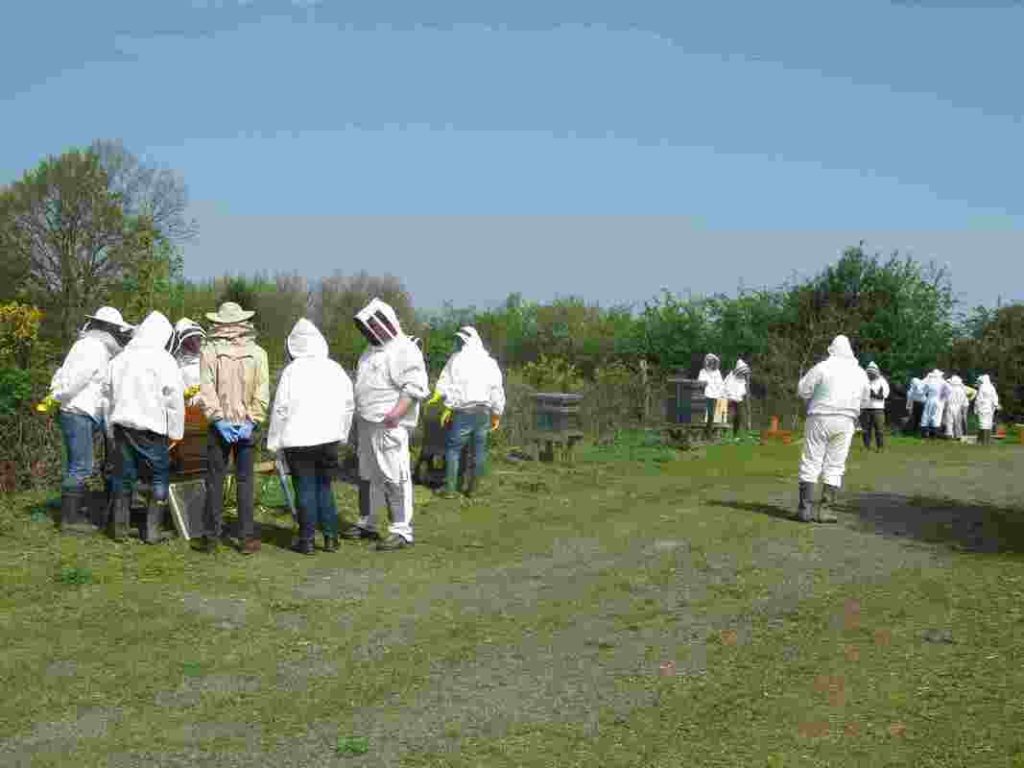I am writing this on Friday 26th June, the fourth very hot day in the current heat wave. It is undoubtedly too hot for beekeeping, all we have been doing is putting in clearer boards, extracting honey and returning the “wet” boxes for the bees to fill again. Obviously my earlier pessimism regarding lack of a “main flow” has been proven to be totally incorrect, the bees have just been refilling the boxes as soon as they are returned.
However, the Limes are now finishing so we only have the Sweet Chestnut, Heather and Himalayan Balsam to come, providing the environmentalists have not destroyed the latter.
A quick update on the two swarms we have taken this year. The “Rowtown” swarm is now located in one of our apiaries, occupying three deep boxes, good brood pattern and very docile, we look forward to extracting a small surplus from them during August. The large swarm, still in our garden, has already produced over 100lbs of extracted honey and are busy refilling the returned “wet” boxes.
Unfortunately, however, our queen rearing programme has been and is a complete disaster this year. We rely on the swarming instinct to produce the best queen cells for placing in the mating nucs, and this year swarming in our colonies just has not happened. Some colonies have tried to supersede, only a couple of queen cells, we have tried artificial swarming on these, destroying them and replacing the frame with eggs and young larvae from the colony we wanted to reproduce from. All they did was to produce another couple of queen cells and frequently one of these failed. Very frustrating! It looks like most of our colonies will be going into winter with either a 2019 or a 2020 supersedure queen.
Although, we and many other beekeepers have noticed a huge proliferation of drones in the colonies this year there has not been a similar significant increase in virgin queens. Many of us have noticed that the current queens do not last for more than one season, in the past a queen bee could remain viable for at least three years. In my opinion, probably as a result of varroa, drone virility is lacking. My theory is that we are possibly witnessing an evolutionary trend whereby the bees are trying to correct this phenomenon by producing more drones thus increasing drone numbers to facilitate better mating for the virgin queens.
Rob Chisholm (June 2020)

